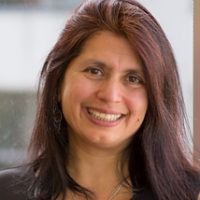 My name is Farah Mahrukh Coomi Shroff. Farah means joy and Mahrukh means face of the moon. Coomi is my grandmother’s name and I’m not sure what it means. I come from a community of people called the Parsis who are originally from Persia and we’ve been in India for about 1000 years. I was born in Kenya, and I’ve been here on Musqueam land most of my life. I have travelled and worked in Asia, the African Continent, Latin America and other parts of the world.
My name is Farah Mahrukh Coomi Shroff. Farah means joy and Mahrukh means face of the moon. Coomi is my grandmother’s name and I’m not sure what it means. I come from a community of people called the Parsis who are originally from Persia and we’ve been in India for about 1000 years. I was born in Kenya, and I’ve been here on Musqueam land most of my life. I have travelled and worked in Asia, the African Continent, Latin America and other parts of the world.
The earliest inspiration for my passions arose from experiences within our family. My parents were raised in poverty in India. When I was 14 years old, our parents took my sister and me on a trip back to their homes. It was an amazing experience of connection to the land that I did not know but I felt like I belonged. The experience of poverty and wealth, cheek by jowl, was jarring and had a lasting impact on me. That trip to the homelands of our parents changed my focus to social justice and human rights for all.
I have not changed much since those days! Travelling and doing work related to social justice, especially with women (and those who identify as women) and South world women, is really close to my heart. I have also lived in all three parts of the Canadian Arctic and really enjoy living amongst Northern Indigenous communities. Working with Inuit, Metis and First Nations communities and other people up North felt very comfortable for me. Culturally, socially and otherwise, I enjoyed being in the North and learned a huge amount from the people there. Being adopted by an Inuvialuit family and being named Iqaluk (Arctic Char), after the Grandpa, was a great honor. Hunting, fishing, trapping and being on their land was rewarding and unforgettable! I have also worked with people of the Musqueam Nation and many other Nations. Building bridges between us Indians and Indigenous communities is important to me.
As a social justice scholar, educator, organizer and activist, I really care that we all get a better deal in this world. I started Maternal and Infant Health Canada, (MIHCan) so that women, and those who identify as women, and children here and abroad have the best chances of being healthy. MIHCan focuses on education, research and innovation.
Using creative means to spread the message of caring for others, especially those who are really different from us, is important to our work. We have recently created a video and many of our events use movement, storytelling, theatre and other forms of creativity. MIHCan prompted the City of Vancouver to create a proclamation that February 12th –which is around Valentine’s Day, a day of love– be the International Day of Sexual and Reproductive Health Awareness. It’s a day to look at building bridges between women here and abroad. This year we did a livestream event on our Facebook page with many voices here and in India. I was in India with one of our amazing partners, Dr Manisha Gupte, and the two of us discussed sexual and reproductive health issues from Pune, India. Also, a UBC student MIHCan Club just formed and we are very excited about this expansion.
MIH Can is also working on an exploratory study to appraise the feasibility of Ayurveda, a traditional health system, in promoting health and preventing maternal and infant morbidity and mortality in India. The opening of the AYUSH Ministry in 2014 signals an interest in traditional medicine – a first in hundreds of years. This is therefore an opportune moment to examine the potential benefits of traditional medicine/integrative health practices as health promotion and disease prevention possibilities for maternal newborn and child health. Through this study, MIHCan is gathering the perspectives and experiences of: Ayurvedic physician specialists in obstetrics/gynecology, Ayurvedic college educators, maternal-neonatal-child-health experts, and women. A content analysis of common themes will contribute to the paucity of literature in this area. MIHCan sees this as a gap in global maternal and child health work, as the vast majority of people in the Global South access traditional and integrative health practitioners as their primary care providers. The possibility of working with practitioners of traditional and integrative practitioners to improve the health of women and children, particularly for health promotion and disease prevention, is potentially great.
MIHCan also looks at the structural issues of global equity. Health status is distributed along the lines of money and power. In public health, the social determinants of health include inequities in income and social status. We thus take a multi-pronged approach to health, combining integrative health approaches to public health approaches.
We encourage you to connect with us on Facebook, which is the most up to date version of what we are doing, and through email, requesting our newsletter, at: mihcancares@gmail.com as we are happy to work with others! We also have an event coming up in the fall in which we are launching our video. Here’s to better health and human rights for all people everywhere!
 Faculty of Art
Faculty of Art